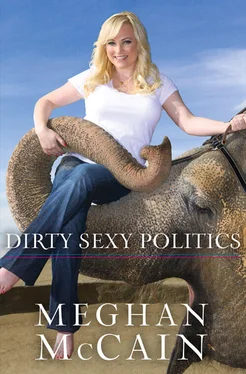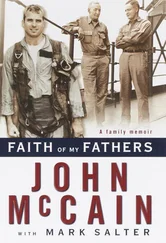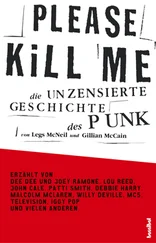My memories of watching him campaign in New Hampshire in 2000 are really vivid. I hadn’t spent much time in snowy New England, and hadn’t been exposed to its gorgeous, almost storybook setting. It is hard for me to put it into words, but New England almost doesn’t seem real to me. And my memories of New Hampshire are so strong, like a beautiful movie that I can step into.
For those who have trouble keeping the election process straight in their heads, New Hampshire follows the Iowa caucus by a few days, so it is one of the most important primaries of the campaign and has the potential to shift national preferences, sometimes dramatically. You can start out an underdog, but if you win New Hampshire, you are suddenly a frontrunner. You win New Hampshire and you have momentum, and promise. A domino effect kicks in. You win New Hampshire and the campaign donations start flooding in too.
My dad was an underdog in the race in 2000. George W. Bush had come away the victor of the Iowa caucus, had a much bigger campaign war chest, and was leading in the polls with 64 percent of the predicted vote. Dad had only 15 percent. But he is never one to give up. He loves New Hampshire, particularly for the way politics gets done there—town hall by town hall.
The best thing in the world for me was seeing him conduct a town hall. I watched in total amazement, aware immediately that he loved every second of it—the contact with people, the setting, and the bizarre and surprising range of questions. He listened, looked people in the eye, and answered their questions in the same way that he answered all the life questions I asked him when I was growing up. He was comfortable and real, and so strong.
I had never seen anything like it—democracy in its truest form, unclouded—and I remember feeling so proud of my dad. People still referred to him as the “grand master of the town hall” and sometimes “the governor of New Hampshire.” His town halls were jam-packed with people, wherever we went. The experience was so beautiful and emotional. Politics was personal, I saw that so powerfully. At fifteen, maybe I didn’t really understand all the ideals. But I understood the feelings.
Veterans talked about their military service, elderly people confessed they couldn’t afford their prescriptions, mothers brought their disabled children—and everything else in between. It made me feel giddy and sad, all at once, a roller coaster of feelings. I remember somebody asking my dad how he felt about “hemp” and, not knowing that this was a question about smoking it, he answered that it was great for “making rope.” We had a good laugh about it for years.
Our mood was high, and we were so hopeful. When he won in New Hampshire that year—a stunning upset of nineteen points against George W. Bush—it was the biggest upset of the political year. Everything was focused on South Carolina, the next primary, just two and a half weeks later. Bush had a fifty-point lead there, but he was losing ground. After New Hampshire, my father was closing in.
This is where things become ugly and sad. What happened in South Carolina in 2000 is what caused me to reconsider everything, and draw away from politics. My father lost in South Carolina, but he didn’t lose fair and square. He lost as a result of one of the dirtiest political tricks ever played. A hate campaign was waged against him and our family—a campaign that spread lies and fear.
E-mails went around, and became viral, saying that my dad had “sired children out of wedlock.” There was mention of a “Negro child.” Pamphlets—thousands of them—were stuck under car windshields showing a photograph of all of us, my mom and dad; me; my brothers, Jack and Jimmy; and my sweet sister, Bridget, who was adopted by my parents from a Bangladesh orphanage when she was a baby. The pamphlets led people to believe that Bridget was the “Negro child” my father had sired out of wedlock.
Something called “push polls” were conducted. Republican voters were called at home and informed that my father was mentally unstable from his years in prison as a POW or a Manchurian candidate secretly planning to spread communism. There were mentions of the “Negro child” during the push polls, and my mother, who had struggled with a prescription drug addiction after back surgery six years before—and had talked publicly about it—was smeared as a drug addict.
It was sick, disgusting—and everything it will go down in history for being. And it was so dirty and secret that it became impossible to trace who was responsible, directly or indirectly, except to know the man who won that primary: George W. Bush.
For my family, it was devastating. My whole world, the people whom I loved most, my parents, and brothers, and baby sister, were suddenly at the center of ugliness and unwanted attention. To lose a race is hard enough. But to lose unfairly is brutal and haunting. I blocked out the pain, and tried to forget, but at the same time, it stayed with me—the way feelings do when you try to ignore them. Someday I’d want to know what happened, I figured, but not yet.
Three or four years later, when I was in college, I came across an article in Vanity Fair that went into explicit detail about the South Carolina primary, and I remember feeling really uncomfortable reading it. I wanted to know the details, but at the same time, I didn’t. My mom had explained a few things—but not too much.
She had been waiting until we asked questions, and were old enough to understand, except I don’t think there is a way to understand.
People in politics, and those of us raised in political families, are told not to take politics personally. But, of course, we do. We must. Otherwise the world of politics will become even more dehumanizing and impersonal. If we don’t take politics personally, we aren’t honoring what it means to be human—and risk winding up as cruel and unfeeling, as inhuman, as the ones who spread lies and win unfairly.
The trick, I think, is to remain human and just forgive.
My father moved on—that’s how he is, he moves forward, doesn’t look back, doesn’t get burdened by hate or the wrong actions of others. He leaves things for history to judge. But for my mom, and the rest of us who love him so much, it was impossible. Eventually, when I was in college, I asked my mother about South Carolina. And I guess my brothers, Jack and Jimmy, eventually did too.
But my little sister, Bridget, the youngest in our family, didn’t know anything about it until she was sixteen years old and, just for kicks, she happened to google her own name and found herself linked, in almost every item, to the South Carolina primary of 2000.
She called me immediately, extremely upset, crying, and—not understanding what had happened—she feared that somehow she, and the color of her beautiful skin, had affected the outcome of that election, and caused our father to lose the race. It was heartbreaking, so heartbreaking.
I told her a few things that I knew, mostly that it was sick, and screwed-up people did things like that. I told her that I believed in karma—and that what goes around comes around, and those events will live with President Bush and Karl Rove, his creepy campaign “mastermind,” and with the individuals from the Christian Coalition who had helped to orchestrate it and did the push polls.
I told her that I loved her and that it was our job to make sure that things like this didn’t happen in politics again, because it was wrong and terrible for our country.
“Does President Bush hate me?” she asked.
This was the saddest of all.
“No,” I said. “He can’t hate you. He doesn’t even know you.”
“Why did he do it?”
“He just wanted to win.”
We’ve all moved on now, my whole family, including Bridget. My father set the tone and we followed. He has taught us about looking forward, forgiving and moving on. But when I was nineteen and registering to vote in a presidential election for the first time in 2004, it wasn’t possible for me to vote for a man who had been responsible, directly or indirectly, for causing so much sadness and pain in my family and for debasing the democratic process with dirty tactics and smears. He had never apologized or even distanced himself from the wrongful actions of his followers.
Читать дальше












